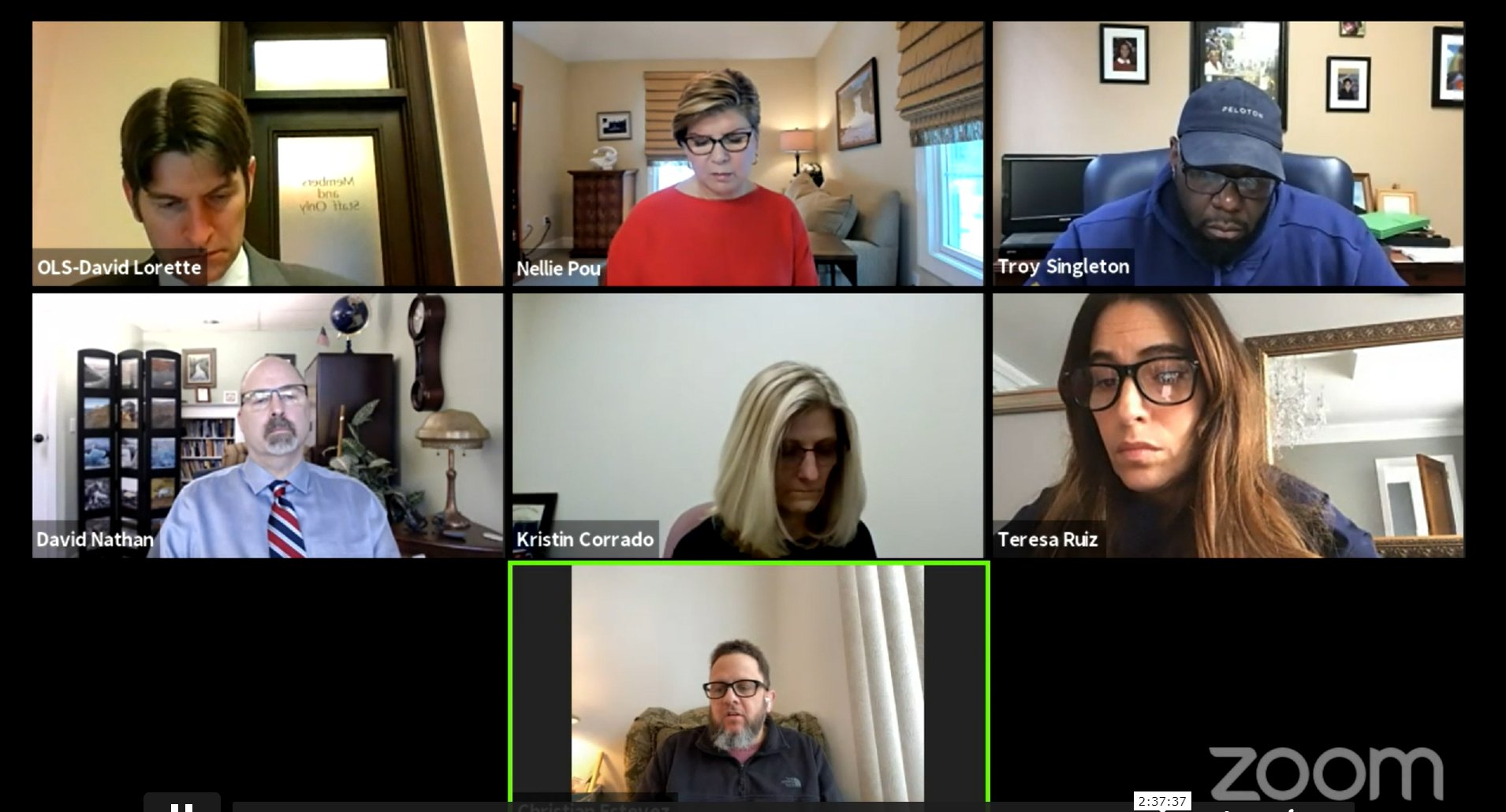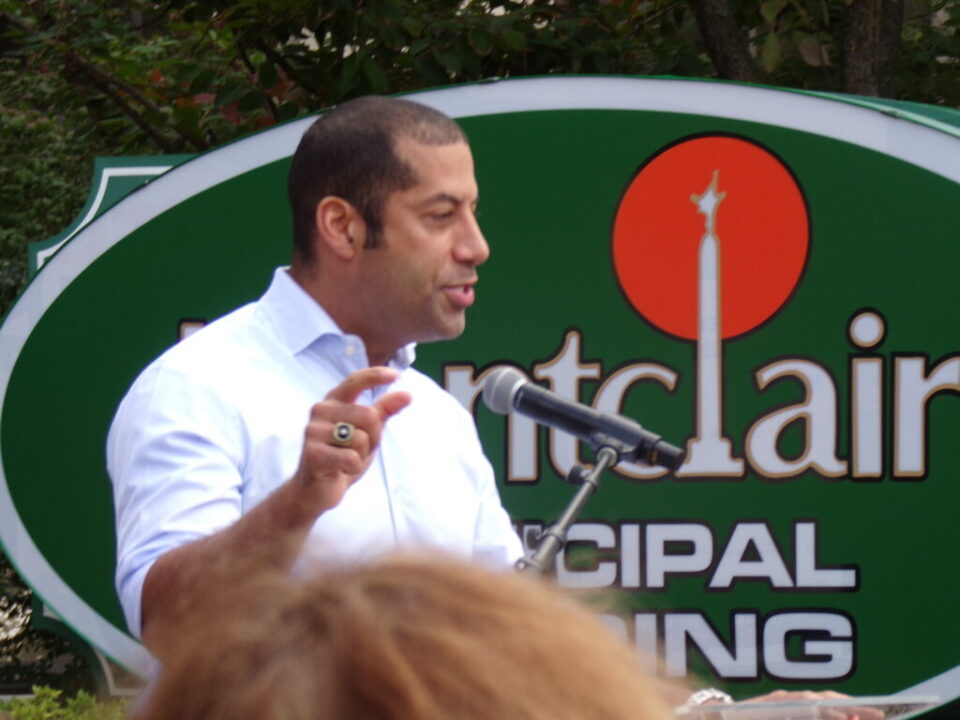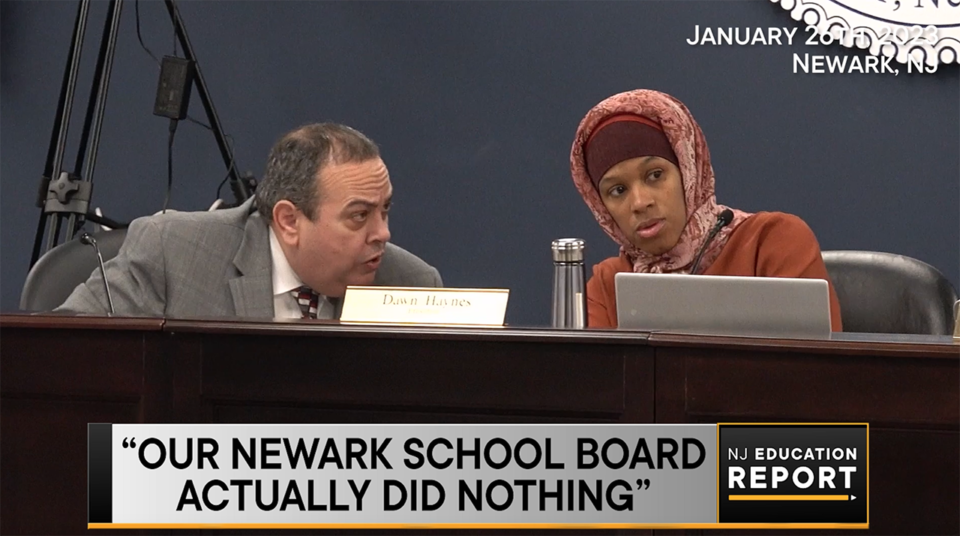
New Report Predicts Severe Learning Loss for NJ Students, Black Students Hardest Hit
March 30, 2021
As NJ Schools Stay Closed, Lawsuits Pile Up: Here’s the Latest List
March 30, 2021McKenna: After A Full Year of School Closures, Have Suburban NJ Districts Lost Parents’ Trust?
Laura McKenna is a New Jersey parent of two teenage boys, one currently studying at Rutgers University and the other a high school student with autism. She has been a special ed teacher in the South Bronx, a grad student, a policy research, a college professor, a blogger, a PTA officer, and an education writer. You can find her here.
When schools closed last March, kids were sent home with packets of worksheets and little access to teachers, even remotely. There was a long summer without camps or community activities. And then this fall, most kids got some half-baked hybrid education plan — half in, half out. Marching band and prom — school activities which are the center of suburban communities, sometimes more important than the academics — were cancelled.
By now, older kids have simply given up and may be developing mental health issues that are not yet fully seen. The parents of younger kids haven’t been able to work and are deeply concerned that their kids haven’t mastered the basic reading and math skills.
Parents of kids with special needs kids, like us, are stunned. The problems are so vast and sad that we can’t even find words to describe our reality. Our kids are not typically in local sports activities, so they’ve sat alone in the bedrooms or empty school buildings for an entire year.
My son’s speech and social skills teacher has only now just returned to school. It’s hard to teach social skills through a Zoom call. Hard fought skills have been lost this year. By the point, we’re more depressed than angry. Anger is pointless.
As of now, there are zero plans to create summer school programs or hire additional staff to help with learning loss or social-emotional damage.
As schools slowly reopen, social distancing regulations ease up, and people get their shots, will there be any lasting political impact from all this? Will this year be like an Avenger’s Time Blip? Will we go back to normal soon? Or will there be lasting scars?
In this week’s Atlantic, Edward-Isaac Dovere says that schools closures could pose a serious problem for Democrats and Joe Biden. Suburban parents are pissed and won’t forget this year, he said. This year could turn the suburbs red.
Here in the Jersey suburbs where things are particularly ugly, I’m not hearing people say that they’re switching parties. However, I am seeing a quiet exodus from public education.
Enrollment in public education in my town, particularly in the lower grades, is down. In Montclair, 459 parents left the public schools. (That decline in enrollment is happening at our community colleges, too, but that’s a topic for another day.) Last fall, Anna Kamenetz at NPR reported that public schools around the country were seeing a decline in enrollment; I would love to see the new numbers.
I’ve been studying charter schools and vouchers since the mid-90s. When I was in grad school and working full time at a policy institute, I led a project for the Ford Foundation looking at various state policies around charter schools. My team and I interviewed urban school reformers in Philadelphia, Chicago, and San Antonio. Later, I did my dissertation on the politics of school vouchers talking to politicians and reformers in Philadelphia and Cleveland.
From all those conversations, I learned that urban education advocates were very much in favor of finding alternatives – anything – to the crappy schools in their neighborhoods. While suburbanites were content with public education, which benefitted from their extra tax dollars.
Back in 2015, I wrote a little piece for The Atlantic about why suburban voters didn’t care about school choice.
Soccer or lacrosse, Whole Foods or the farmers market, microbrew or Pinot Noir? Suburbanites tend to relish their many options for food and entertainment. At block parties, neighbors engage in hearty debates about the best place to vacation or the optimal car for shlepping one’s kids. So wouldn’t these very same parents—individuals who likely enjoy the privilege of choosing between a week on a beach or ski slope—want more choice when it comes to their children’s schools?
I again concluded that suburbanites simply weren’t looking for alternatives because they’re already satisfied with their traditional public schools.
Now suburbanites are unsatisfied. What will happen? If they are paying for private schools, will they want help from the government in the form of a voucher or a tax credit? Will they want charter school status for those pods and garage-style schools that they were forced to set up this year? There are few suburban charter schools now, but will that change? We’re already seeing some states – including Georgia and West Virginia — passing voucher legislation.
Are charter schools and vouchers the answer to public school woes? That is too big of a topic for a little newsletter. I just think it’s significant to note that suburbanites have lost faith in their schools and are ready to consider alternatives. If parents and public schools don’t mend their relationship in the next few months, we are going to see massive disruptions, which will go beyond education. What happens if a house’s value is no longer tied to quality of the local public school?
We’ll have to see how schools rebound in the next few months. As part of my son’s usual Extended School Year for special education, some very exhausted teachers have promised full day in-person instruction, which might help him overcome some autistic tics that cropped up this year. If kids, schools, and the community recover, then public schools might regain the trust of my neighbors. If not, then all bets are off.




